Addressing the complex challenges of childhood in India with art-based learning
MPP student and co-founder of Saturday Art Class Chhavi Khandelwal highlights the pressing need for students to develop broader skills to prepare them for the future.
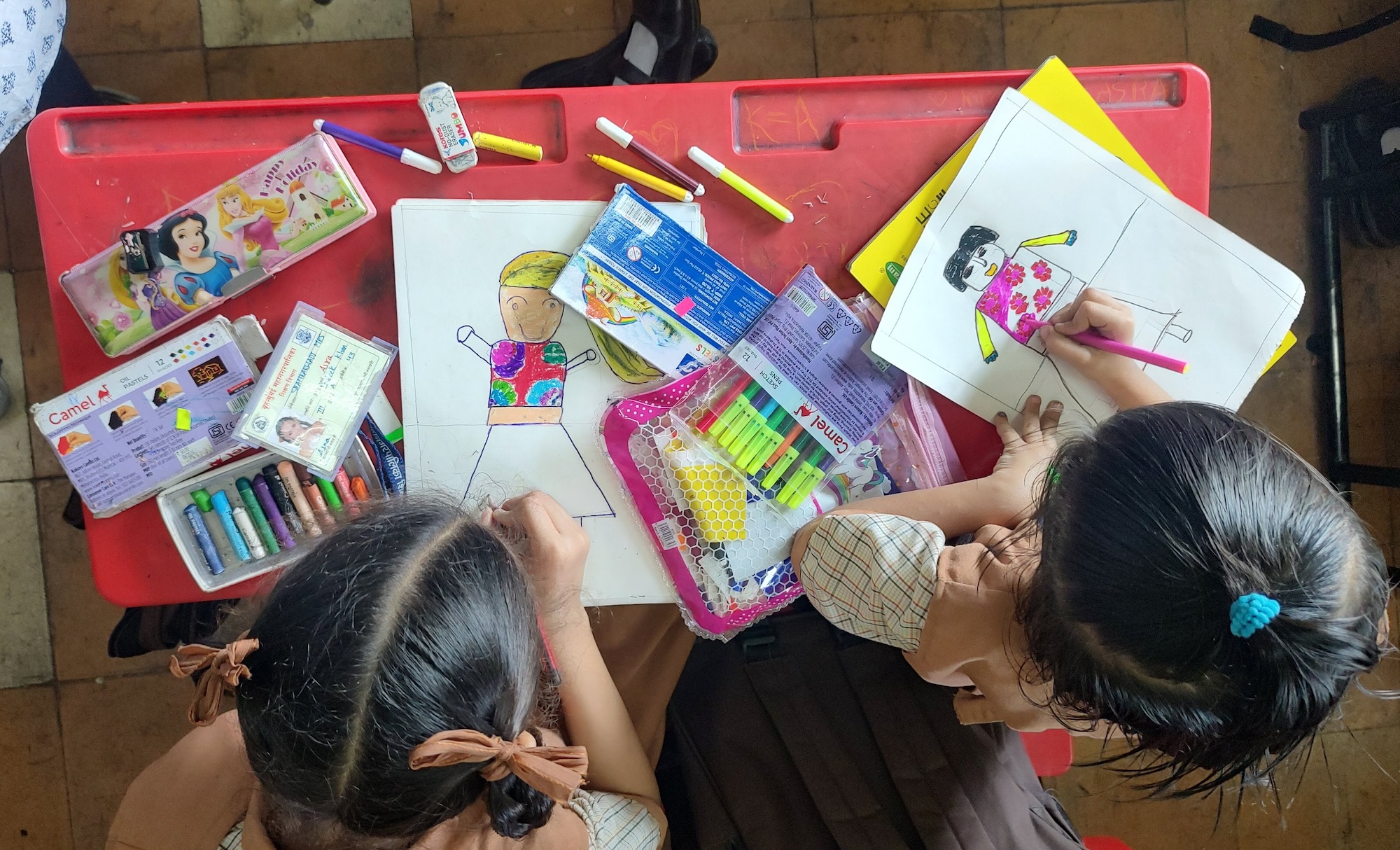
In my final year of college, I volunteered as an art teacher at a government school in Mumbai.
This experience highlighted the severe lack of opportunities for creative expression in low-income communities and the broader gap in awareness of the need for social, emotional, and creative development within the school system. My students faced complex challenges like poverty and mental health struggles, carrying responsibilities far beyond their years.
I realised that incorporating art-based learning could fill this need, providing students with joy, creativity, and safe spaces for self-expression. My weekly Saturday classes aimed to build students' creative confidence and cognitive development while also promoting art-based social-emotional learning (SEL) as a regular curriculum feature. The classes offered students a platform to reflect on community issues and express themselves beyond traditional academics, ultimately enhancing attendance, interpersonal skills, and learning outcomes. Inspired by the impact, I co-founded Saturday Art Class (SArC) with Manasi Mehan, a fellow at the school where I volunteered, to bring SEL and art-based learning to more students.
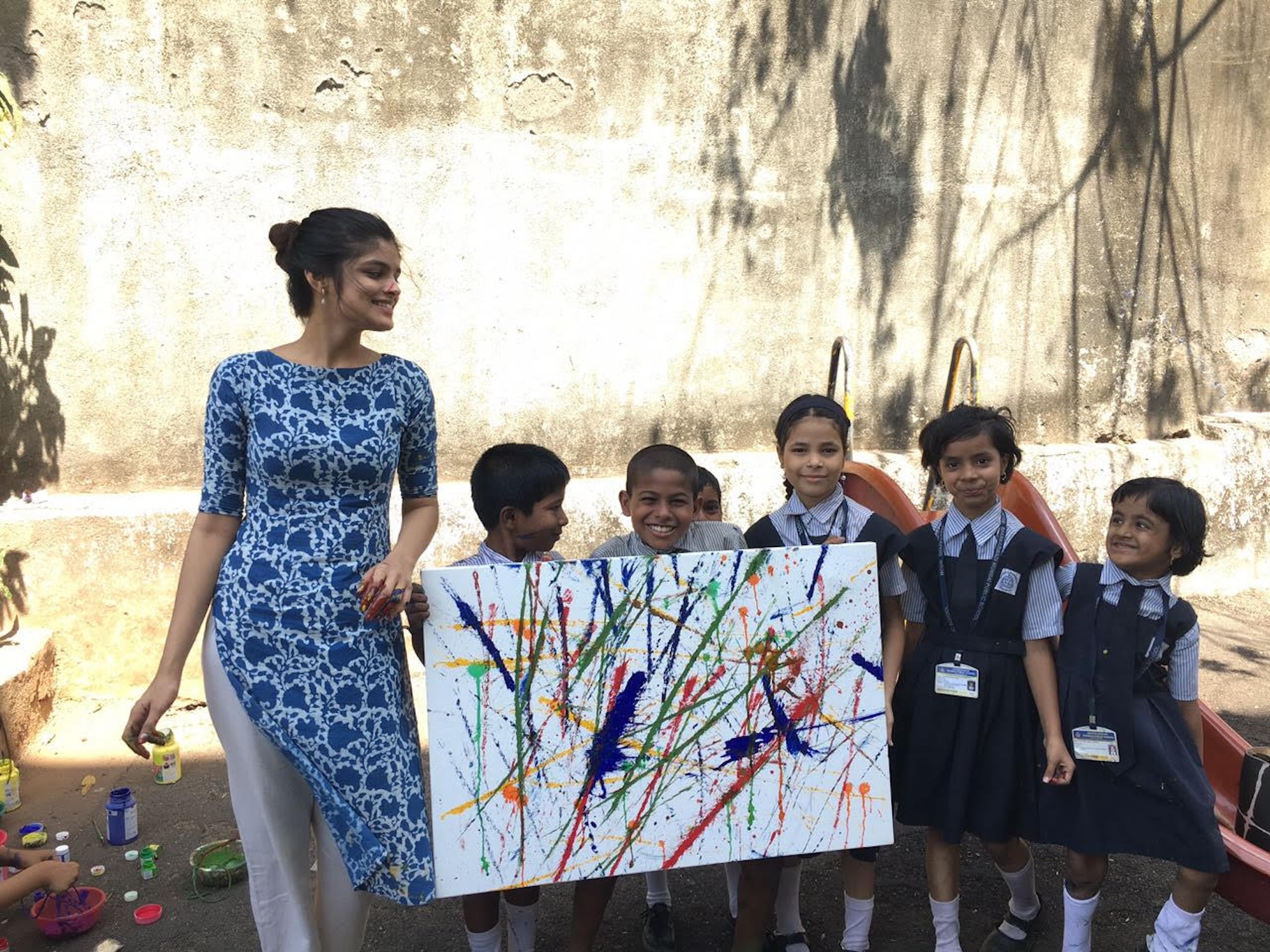
Why do art and social-emotional learning (SEL) matter?
India is home to one of the largest child populations globally, with over 436 million children According to the World Economic Forum, the Indian traditional methods of rote learning and memorisation are going to lead millions of children ill-equipped for the future workforce - significantly impacting the 250 million children enrolled in the public education system. While literacy and numeracy have been the foundational pillars of education in India, there is now a pressing need for students to develop broader skills, such as creativity, communication, and problem-solving, to prepare them for their future.
In 2020, a new Indian National Education Policy (NEP) was introduced to address this need for the holistic development of children, with particular emphasis on developing a child’s creative, empathetic, and cognitive abilities. It necessitated the exploration of effective pedagogies, such as art-integrated learning, and inquiry-based approaches to meet the diverse social demands of the Indian education landscape.
But without a clear implementation framework, the situation on the ground presents challenges. Teachers face difficulties in accessing the support they need, partly due to limited standardisation in curriculum and a gap in research on the current state of art education in India.
Given India's diverse landscape, the government requires support from local civil society organisations to implement the policy at scale.
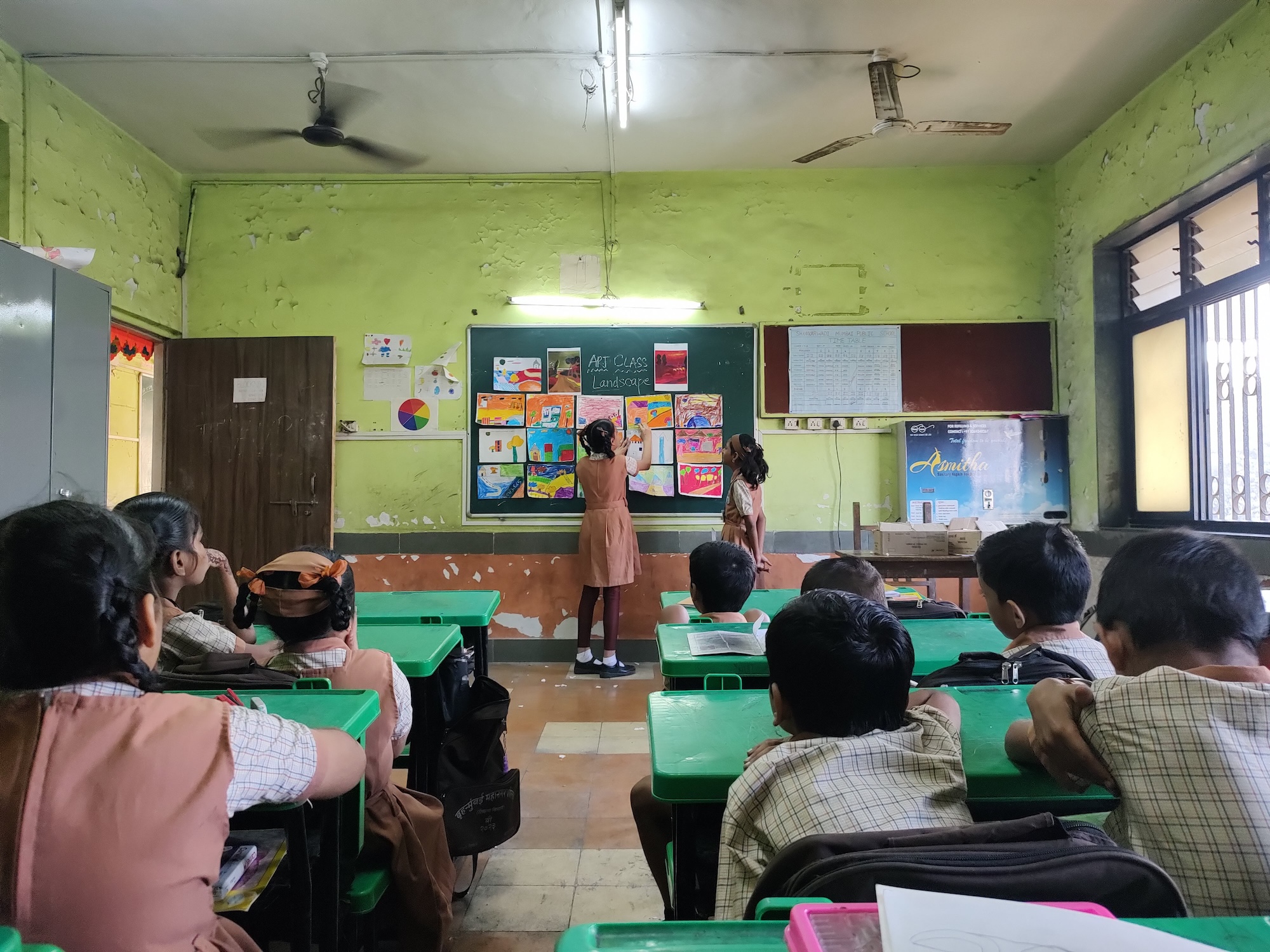
Building access to visual arts and SEL education through Saturday Art Class
My non-profit organisation, Saturday Art Class (SArC), was co-founded in 2017 to provide children in underserved communities access to visual arts and social-emotional learning in their daily school curriculum, giving them a safe space to express and build essential skills to thrive.

So far, we have impacted over 180,000 students on the ground and supported 6,000 educators across 13 states in India. In addition, our digital resources have created access to visual arts and SEL for 1 million children globally. Our programmes address issues and gaps around implementation, research, and advocacy regarding social-emotional learning and art. We leverage partnerships with organisations such as Pratham, Teach for India, Educate Girls, and state governments to implement our curriculum. We conduct research to identify actionable evidence regarding student behaviour change linked to arts and SEL.
Our aim is to systematically change the positionality of SEL and creativity in public education. By providing evidence-based insights coupled with implementation efforts, we can actively advocate for policymaking, foster ecosystem growth, and improve existing efforts on the ground.
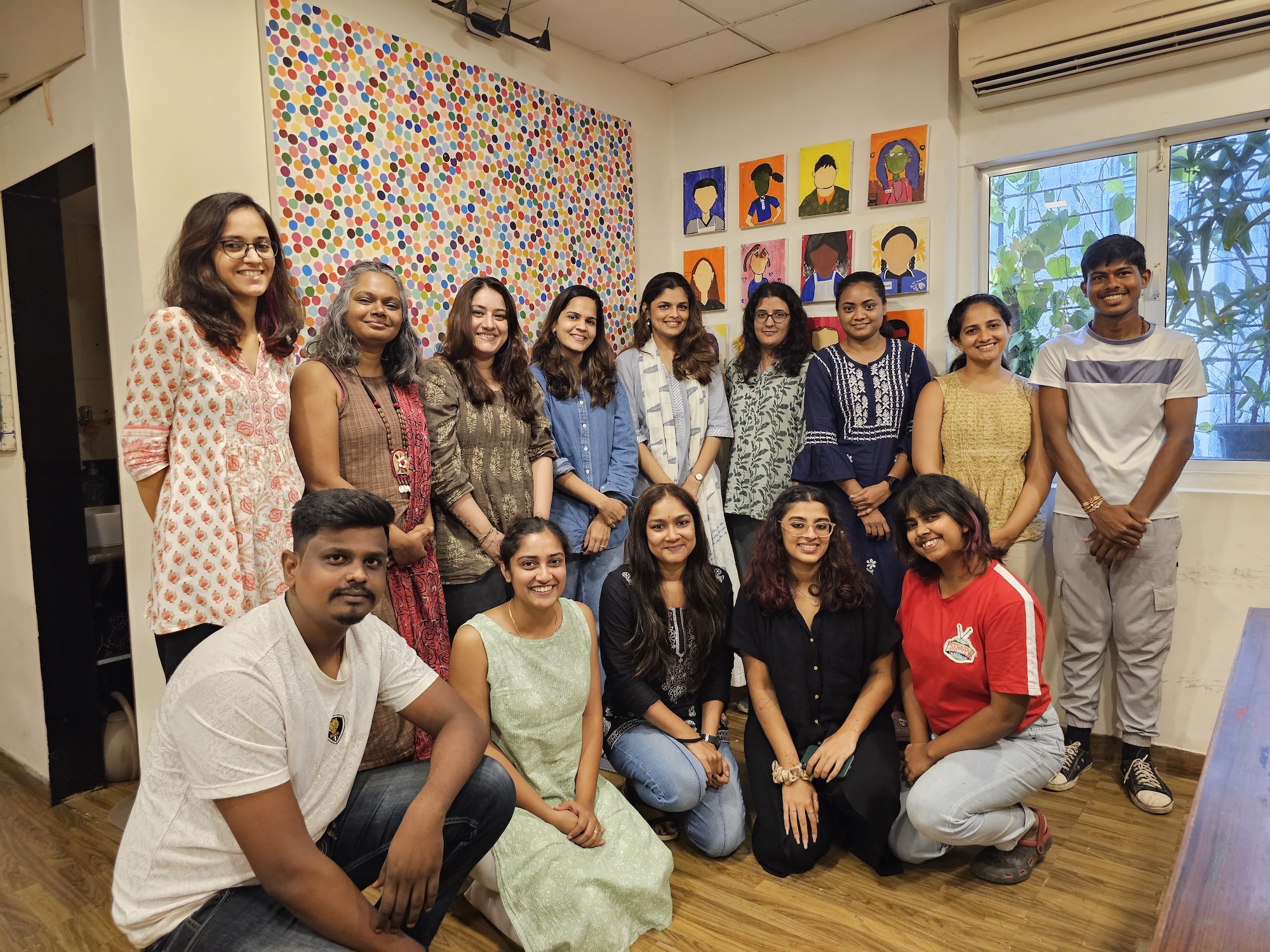
Advocating for impact through research in arts
Research on the impact of visual arts and SEL on students, particularly those from low-income communities in India, remains limited, which often results in the deprioritisation of arts within the daily school curriculum.
This gap motivated us to explore one core question: What behavioural changes emerge in children through regular engagement in arts and SEL? Over the past year and a half, we have worked with over 550 students in a Mumbai government school to understand how positive behavioural outcomes are cultivated through art.
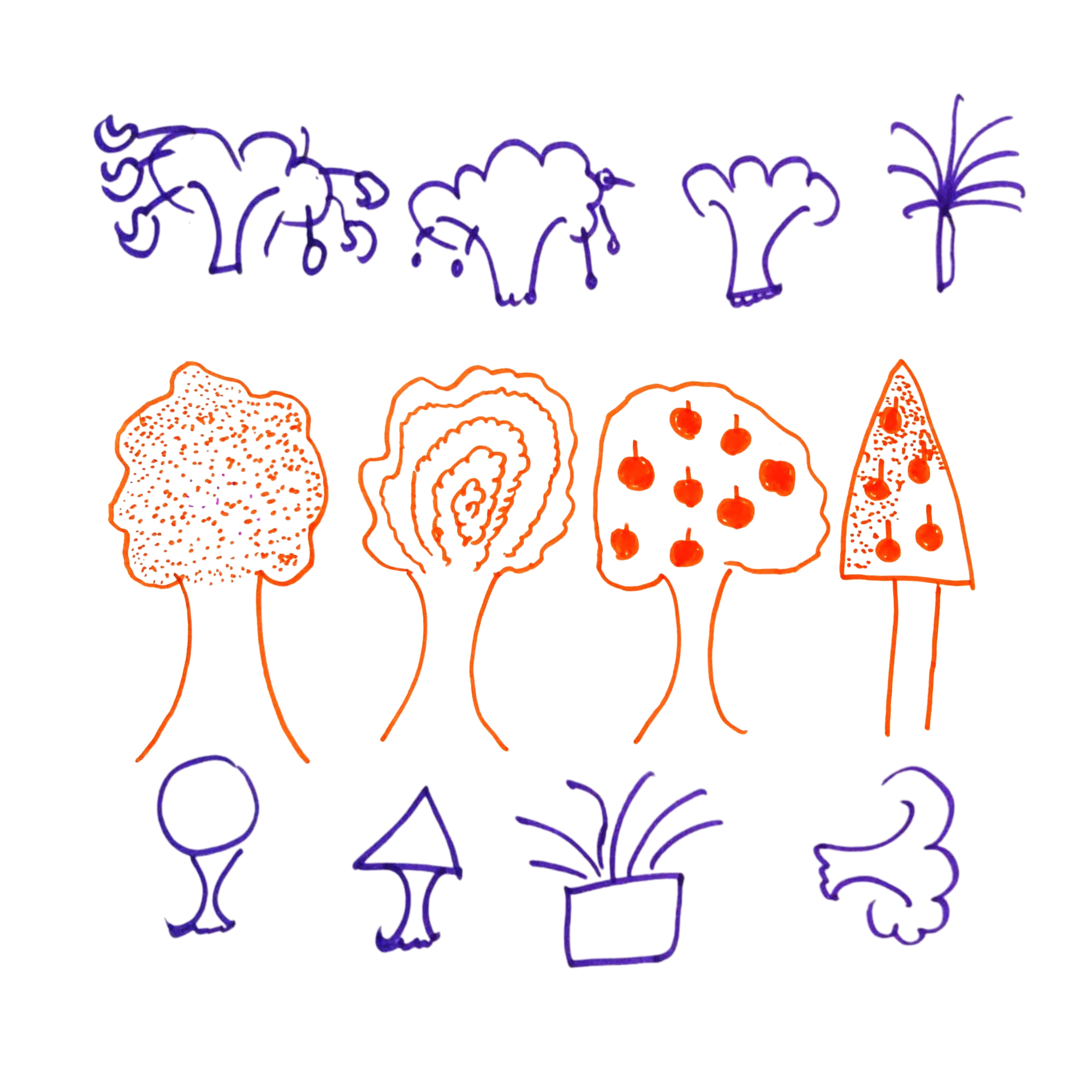
What did we learn?
The research report, “Evidence of the Impact of Visual Arts & SEL Education within the Indian Context,” incorporates a mixed-method approach, combining quantitative behavioural-based assessments and self-reported assessments to capture the visibility and growth in positive student behaviours, along with qualitative insights gathered through focus group discussions and semi-structured interviews.
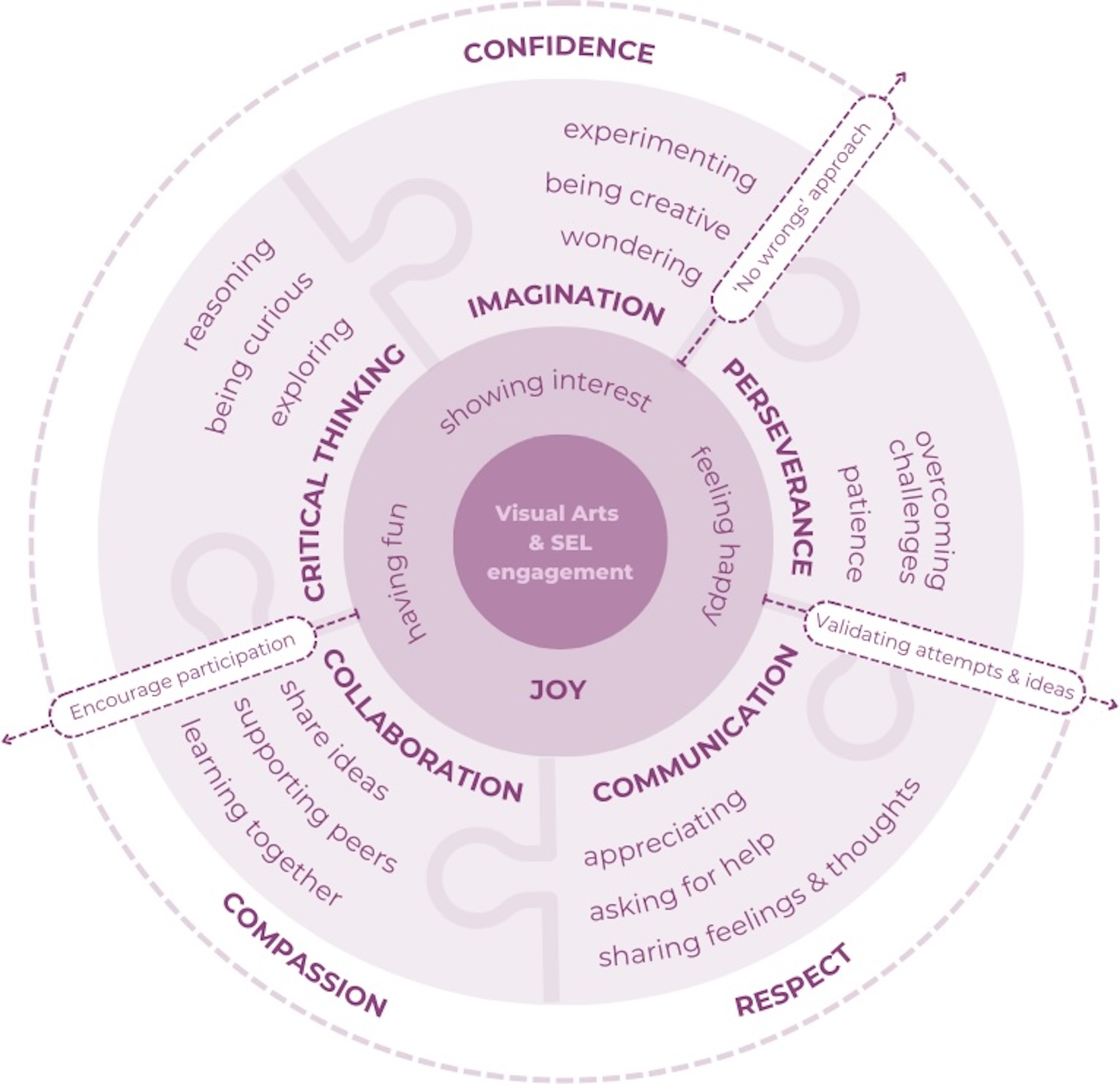
We observed gradual progress in students’ behaviours, such as their ability to think critically by breaking down complex visuals, communicating effectively by sharing their thought processes or asking for help, and expressing their imagination through artworks.
To validate the reliability of these promising findings in the subjective realm of arts education, our qualitative studies with students, parents, and teachers offered firsthand insights into the positive changes observed.
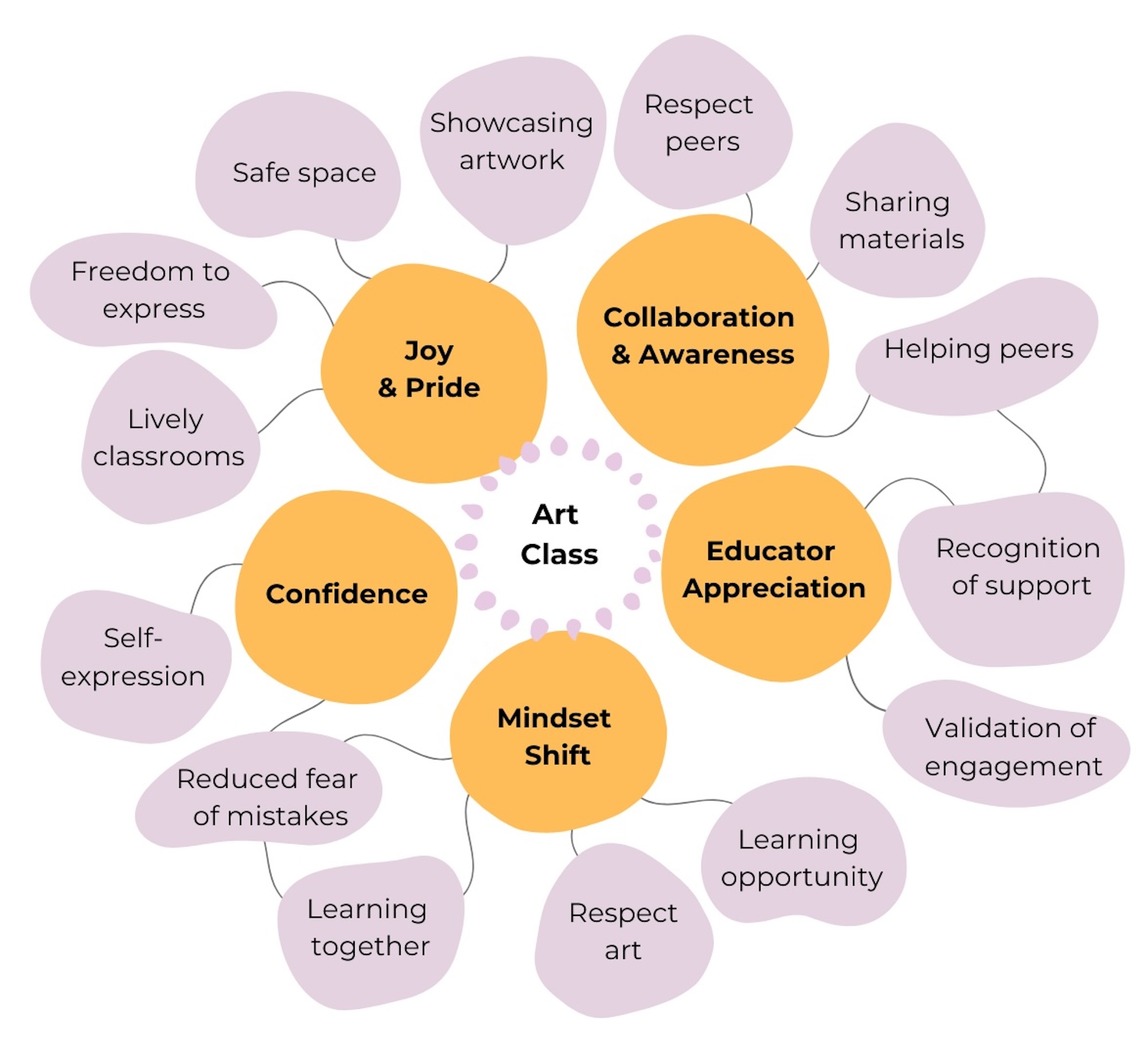
Students shared how the art classes created a joyful space for collaboration with peers, personal storytelling, and creative experimentation. This environment helped them build a trusting rapport with their educator, fostering respect and boosting their confidence to actively participate in the classroom.
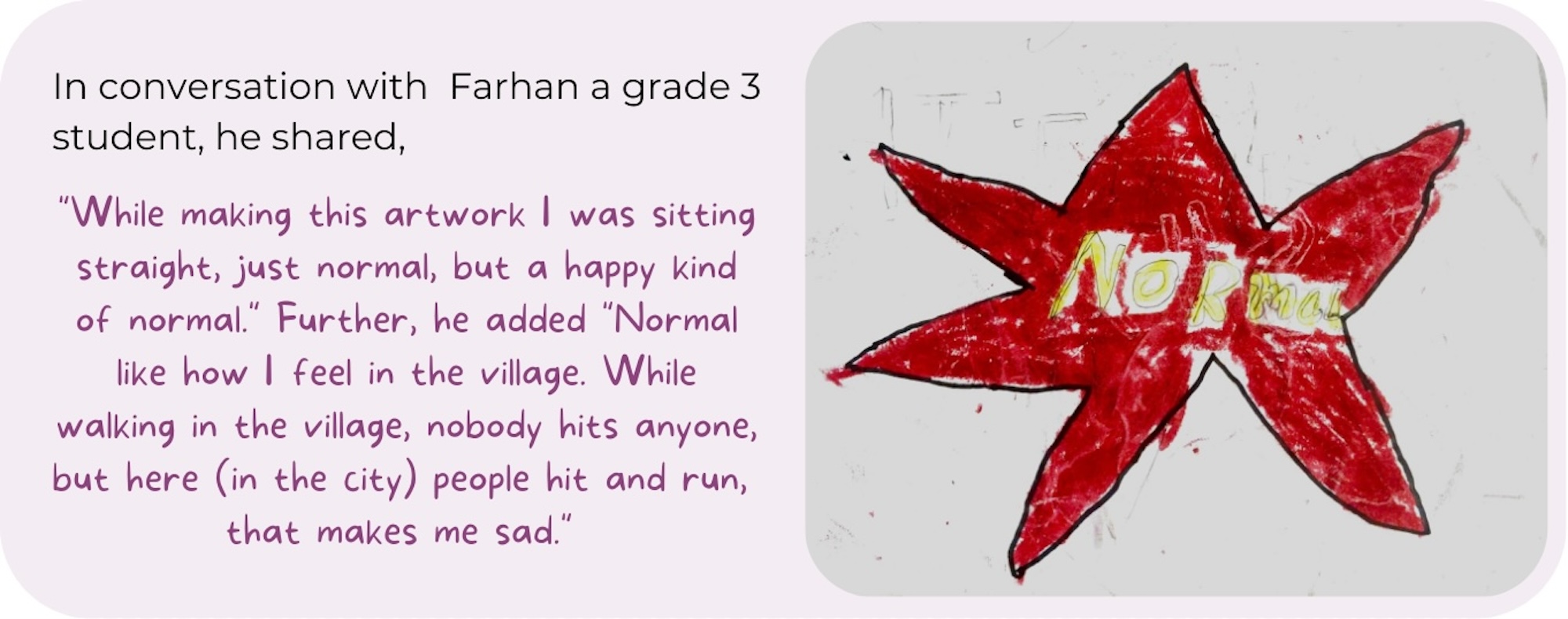
In summary, our research confirms that sustained engagement in visual arts and SEL education enables students to develop essential 21st-century skills, contributing significantly to their holistic growth.
What next? building evidence for advocacy
The research brings forth a significant realisation: while positive shifts in critical life skills are observable among students participating in these interventions, a question remains—how can we ensure such programs are reaching children at scale?
As a leader, I am committed to future research that emphasises the long-term impact of our programmes. We aim to reach 5 million children by 2027, equipping them with the creativity, communication skills, and resilience needed for an increasingly complex world.
By conducting comparative studies and landscape analyses, we aim to quantify the benefits of arts education and identify the gaps in arts and SEL integration across India. These studies will strengthen our advocacy efforts, providing actionable recommendations for policymakers on integrating SEL and creativity into mainstream education.
Through the MPP at the School, I aim to gain a transnational understanding of access, equity, and justice to contribute to global inclusive education policy. The global exposure will help me refine our model and enable SArC to influence policy at scale in India and in the coming decade to undeveloped South Asian nations.
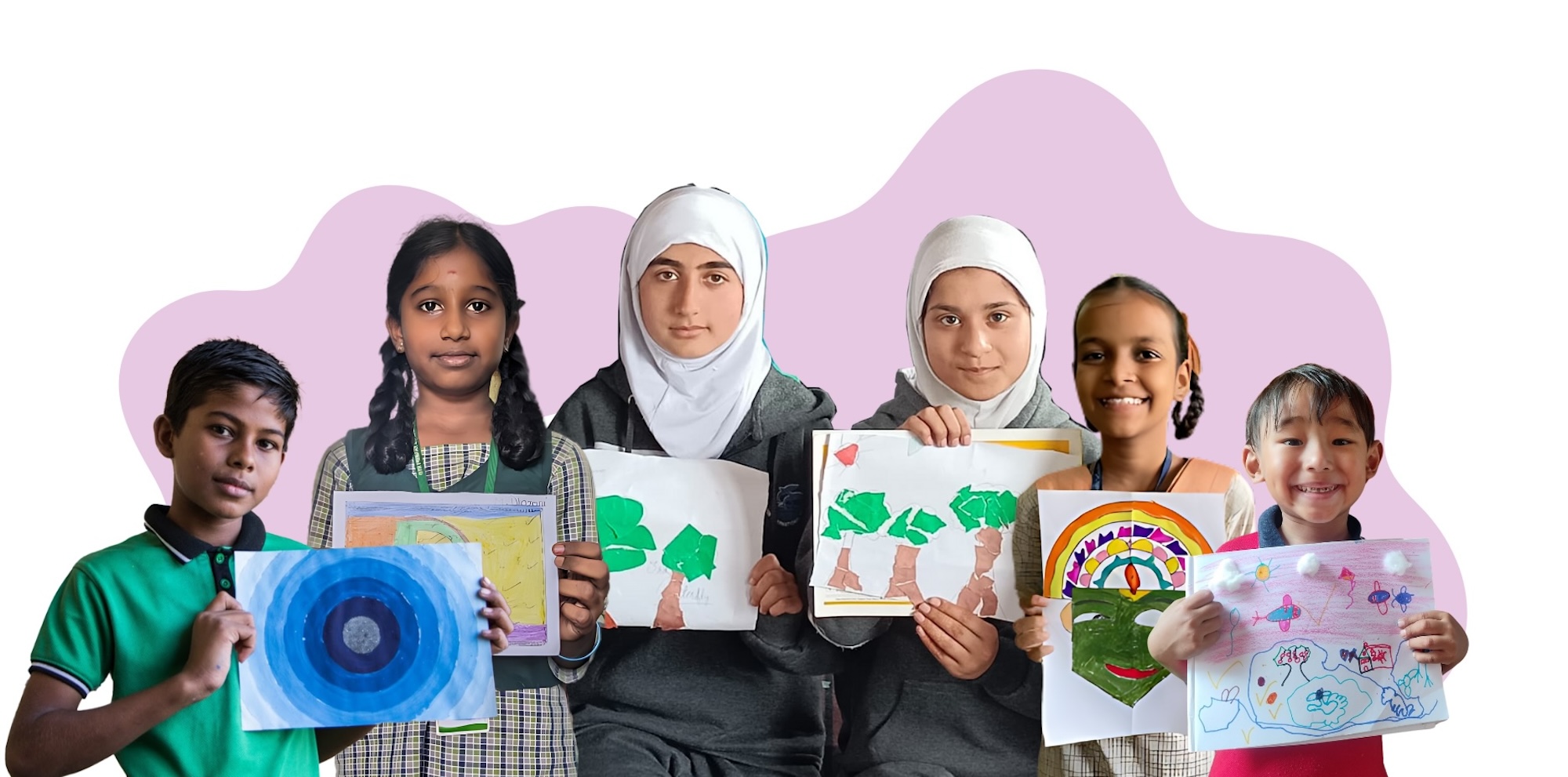
Find out more about Saturday Art Class (SArC) and their research report Evidence of the Impact of Visual Arts & SEL Education within the Indian Context.
Chhavi Khandelwal is a Weidenfeld-Hoffmann Scholar.

